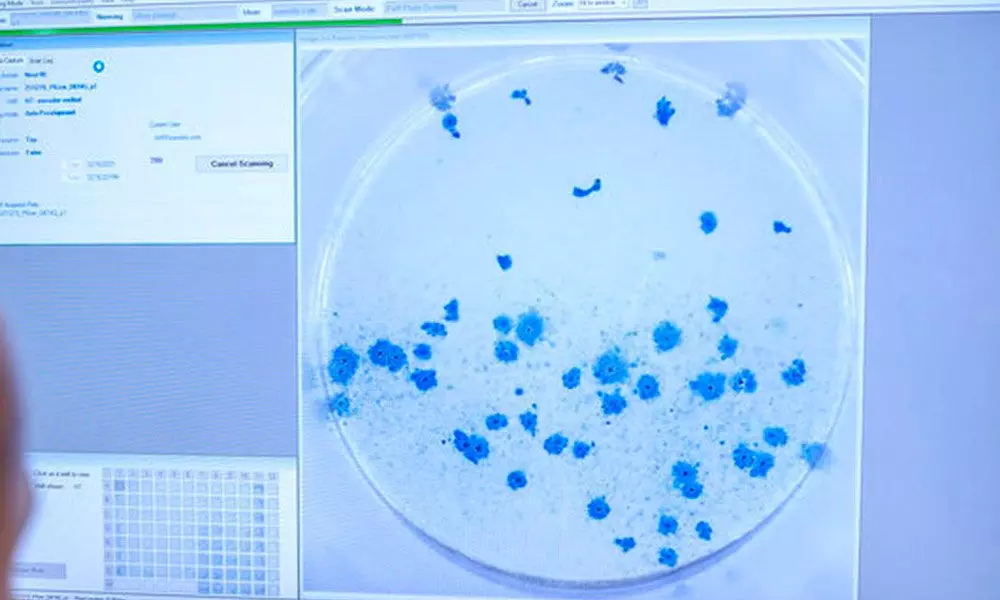Live
- Narsipatnam tank bund my dream project, says Speaker
- MLA Yashaswini slams Errabelli
- Sluggish pace persists at Stamps & Registration Office
- Kanguva’s Box Office Disaster: Is This the End of Suriya’s Mega Hit?
- Maoist killed, jawan injured in encounter
- Kerala Police Officer Brutally Murdered By Estranged Husband In Tragic Domestic Violence Case
- Pallishree Mela records good sales at Bali Jatra
- Kharif paddy purchase begins in Bargarh
- Faeces forced into tribal woman’s mouth
- Hyderabad's Air Quality Worsens as Winter Settles In | AQI Levels Reach Moderate Range
Just In
Omicron infects 70 times faster than Delta: Study


Omicron infects 70 times faster than Delta: Study
The Omicron variant of coronavirus infects and multiplies 70 times faster than Delta and the original COVID-19 strain, but the severity of illness is likely to be much lower, according to a study.
Beijing: The Omicron variant of coronavirus infects and multiplies 70 times faster than Delta and the original COVID-19 strain, but the severity of illness is likely to be much lower, according to a study.
The yet-to-be peer-reviewed study provides the first information on how the novel variant of concern infects human respiratory tract.
The researchers from University of Hong Kong found that Omicron infects and multiplies 70 times faster than the Delta variant and original SARS-CoV-2 in human bronchus, which may explain why it may transmit faster between humans than previous variants.
A bronchus is a passage or airway in the lower respiratory tract that conducts air into the lungs. The study also showed that the Omicron infection in the lung is significantly lower than the original SARS-CoV-2, which may indicate lower disease severity.
The researchers used ex-vivo cultures of the respiratory tract to understand why Omicron may differ in transmission and disease severity from other SARS-CoV-2 variants. This method uses lung tissue removed for treatment of the lung, which is normally discarded, for investigating viral diseases of the respiratory tract.
Michael Chan Chi-wai, Associate Professor at University of Hong Kong, and his team successfully isolated Omicron and compared infection from the variant with the original SARS-CoV-2 from 2020, and the Delta variant.
The team found that the Omicron replicates faster than the original SARS-CoV-2 virus and Delta variant in the human bronchus. At 24 hours after infection, the Omicron variant replicated around 70 times higher than the Delta variant and the original SARS-CoV-2 virus, the researchers said.
Omicron replicated less efficiently -- over 10 times lower -- in the human lung tissue than the original SARS-CoV-2 virus, which may suggest lower severity of disease, they said. "It is important to note that the severity of disease in humans is not determined only by virus replication but also by the host immune response to the infection, which may lead to dysregulation of the innate immune system," Chan said in a statement.

© 2024 Hyderabad Media House Limited/The Hans India. All rights reserved. Powered by hocalwire.com






